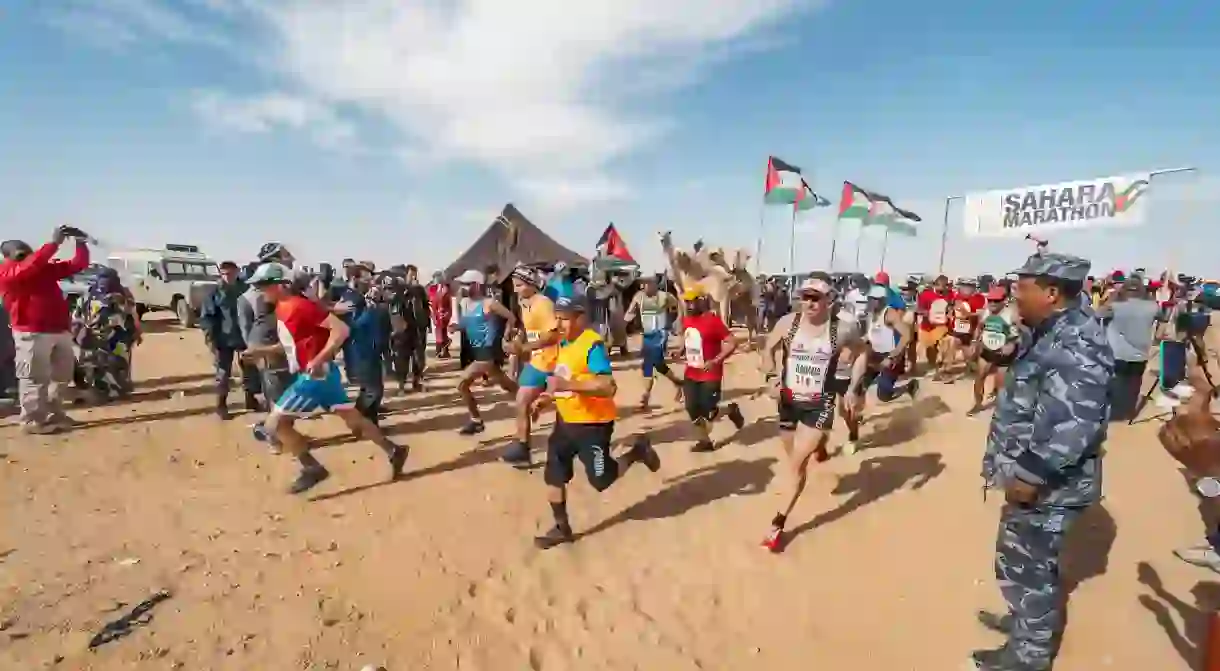Sahara Marathon is More Than Just a Desert Race

Most people who run marathons or distance races do so for more than just a pat on the back for their athletic accomplishment. Participants run for a reason — for someone or something. The Sahara Marathon is no different.
The marathon, which recently celebrated its 17th edition, is an international event that demonstrates the solidarity with the Sahrawi people. The event aims to promote sporting activity among young Sahrawi men and women, and financing and developing humanitarian programs.

It also aims to raise awareness of the 40-year conflict surrounding Western Sahara. The region is located on North Africa’s Atlantic coast and is bordered by Morocco, Algeria, and Mauritania. Morocco effectively annexed the region in 1975 with the Green March, a peaceful procession of 350,000 who marched into the land claiming it as their own. That didn’t sit well with the 570,000 native Sahrawi.
In 1973, the Polisario Front — a Sahrawi movement to campaign for Western Sahara independence — launched a guerrilla struggled against the occupation of its land. The conflict lasted until a United Nations-brokered ceasefire in 1991, but it resulted in the displacement of thousands of Sahrawi refugees. According to the U.N. Refugee Agency, approximately 90,000 people live in refugee camps across the Algerian border, while the Algerian government claims the number to be 165,000.
During the endless struggle, Mauritania renounced its claim to the region, so Morocco authorities capitalized, building a wall through the territory. Morocco annexed two-thirds of Western Sahara while leaving a dangerous no-man’s land in between the two that is patrolled by U.N. monitoring forces.
The Sahara Marathon route symbolically connects the three refugee camps of Smart, Auserd, and El Ayoun, and leads runners through a desert which has been home to the refugees for nearly 40 years.
As the race website says, “This event is much more than a simple race. … Thanks to your effort and your concern for this issue, you have reawakened their hope, giving them the feeling of not being alone.”






















